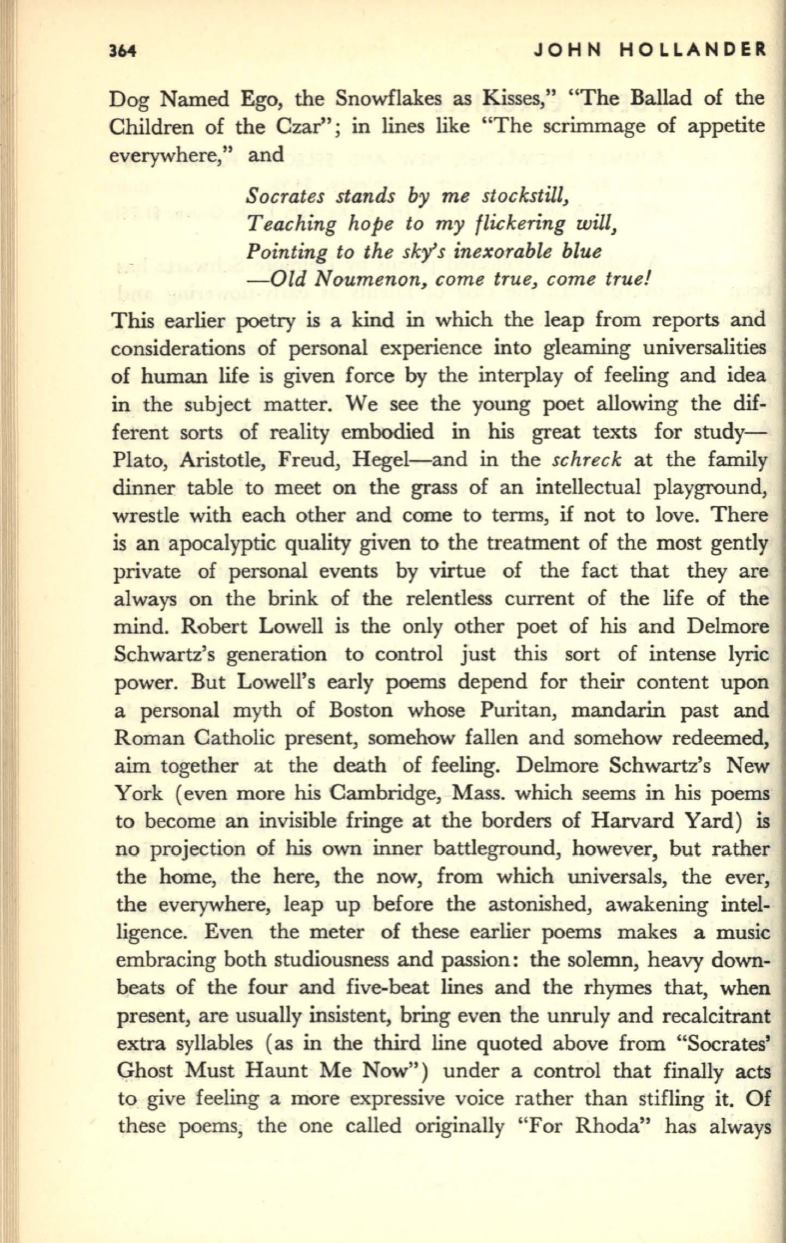
364
JOHN HOLLANDER
Dog Named Ego, the Snowflakes as Kisses," "The Ballad of the
Children of the Czar"; in lines like "The scrimmage of appetite
everywhere," and
Socrates stands by me stockstill,
Teaching hope to my flickering will,
Pointing to the sky's inexorable blue
-Old Noumenon, come true, come true!
This earlier poetry is a kind in which the leap from reports and
considerations of personal experience into gleaming universalities
of human life is given force by the interplay of feeling and idea
in the subject matter. We see the young poet allowing the dif–
ferent sorts of reality embodied in his great texts for study–
Plato, Aristotle, Freud, Hegel-and in the
schreck
at the family
dinner table to meet on the grass of an intellectual playground,
wrestle with each other and come to terms, if not to love. There
is an apocalyptic quality given to the treatment of the most gently
private of personal events by virtue of the fact that they are
always on the brink of the relentless current of the life of the
mind. Robert Lowell is the only other poet of his and Delmore
Schwartz's generation to control just this sort of intense lyric
power. But Lowell's early poems depend for their content upon
a personal myth of Boston whose Puritan, mandarin past and
Roman Catholic present, somehow fallen and somehow redeemed,
aim together at the death of feeling. Delmore Schwartz's New
York (even more his Cambridge, Mass. which seems in his poems
to become an invisible fringe at the borders of Harvard Yard) is
no projection of his own inner battleground, however, but rather
the home, the here, the now, from which universals, the ever,
the everywhere, leap up before the astonished, awakening intel–
ligence. Even the meter of these earlier poems makes a music
embracing both studiousness and passion: the solemn, heavy down–
beats of the four and five-beat lines and the rhymes that, when
present, are usually insistent, bring even the unruly and recalcitrant
extra syllables (as in the third line quoted above from "Socrates'
Ghost Must Haunt Me Now") under a control that finally acts
to give feeling a more expressive voice rather than stifling
it.
Of
these poems, the one called originally "For Rhoda" has always


